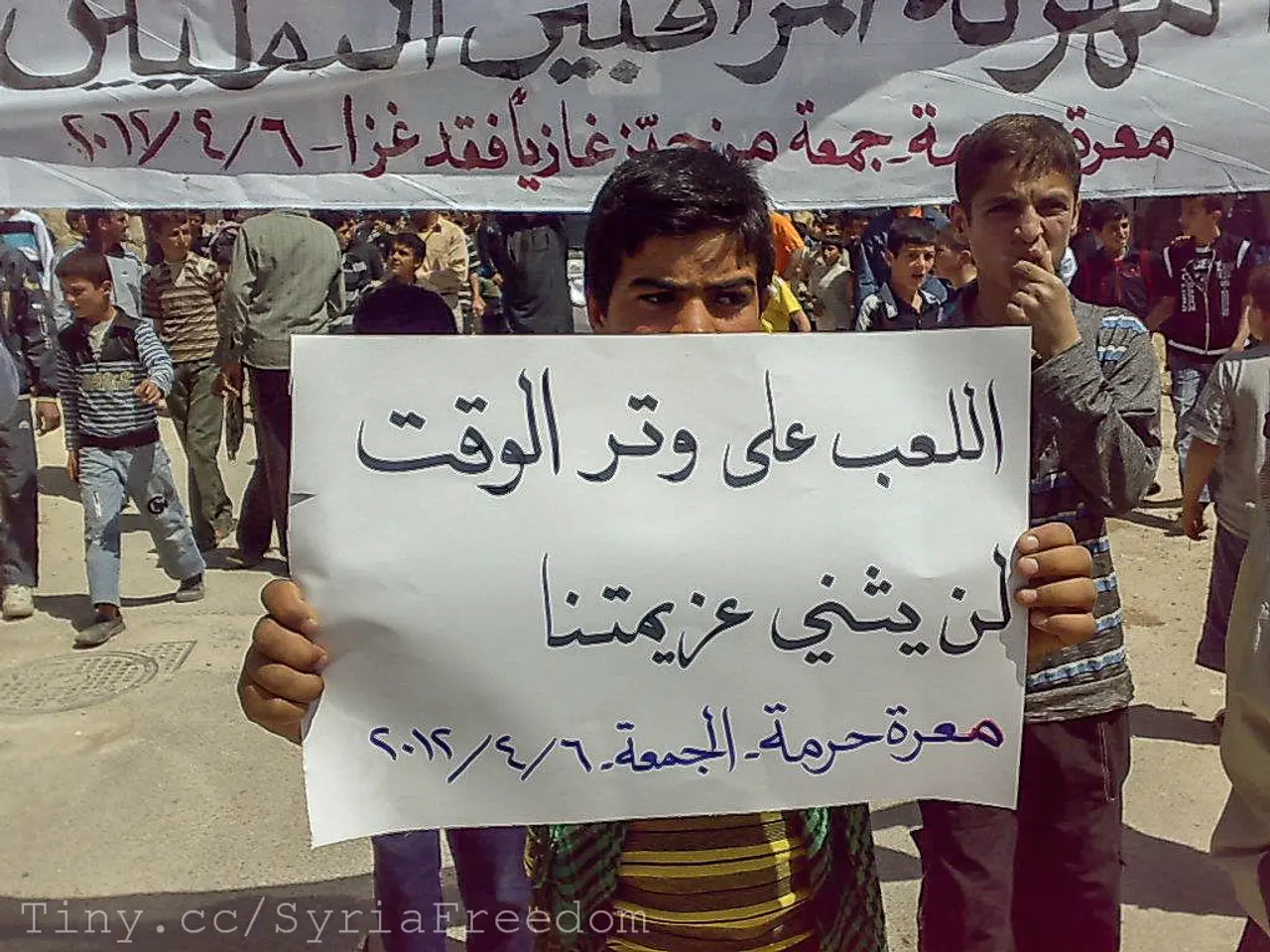Conflict in Gaza stirs up activity in Brussels' bureaucracy
The European Union (EU) is facing an internal conflict as its staff members clash with the European Commission over the EU's stance on Israel amid the ongoing Gaza conflict. The staff members argue that the Commission's failure to pressure Israel over alleged war crimes places them in a moral and legal dilemma, potentially breaching EU and international law.
This dispute has escalated into a standoff over staff rights to protest, with allegations of intimidation within EU institutions. The internal tensions are affecting EU policies, as trade unions and staff call for more decisive, principled action against Israel, including sanctions and suspension of cooperation programs.
The European Commission's current official position reiterates condemnation of Israeli military operations in Gaza and settlement expansions as violations of international law. However, it has so far avoided stronger sanctions or direct pressure demanded by staff and unions.
EU civil servants are demanding recognition of their "moral and legal obligations" and insisting on the right to protest the Commission’s inaction. They claim EU institutions have suppressed their conscientious resistance and risk implicating them in complicity with violations. Some staff members fear professional repercussions or intimidation for speaking out or protesting, reflecting an alleged pattern of internal pressure to conform and avoid dissent within EU bodies.
The conflict reveals deep institutional divisions on how the EU should respond to the Israeli-Palestinian conflict and raises important questions about the treatment of EU employees who seek to challenge official policy from within. A growing number of EU staff argue that the lack of pressure on Israel, despite allegations of grave war crimes, makes it impossible for them to do their jobs without violating EU and international law.
An internal pro-Palestinian survey was banned within the EU institutions, and Israeli Colonel Moshe Tetro, accused of war crimes by the Brussels NGO Hind Rajab Foundation, was allowed to enter the commission's personnel entrance on June 25. The Commission maintains that dismissals occur "exclusively for service requirements and based on individual performance."
The European Council spokesperson dismissed the protests as "political," while the EU's diplomatic service has found that Israel is violating its human rights commitments under the EU-Israel Association Agreement. The diplomatic service proposed ending trade privileges and participation in the Horizon Europe research program as a response to Israel's violations.
The EU institutions have not addressed the allegations of intimidation, and some EU staff are considering strike action to push for more decisive action from the institutions. Approximately 1500 out of 32,000 EU staff have signed an open letter expressing concern about the situation in Gaza and urging the EU to pressure Israel for more aid deliveries.
Critics accuse Brussels of not taking its own agreements seriously in regards to Israel, and the open letter warns of an "exponential" increase in hunger-related deaths if the EU doesn't take action. However, the EU's heads of state have not agreed on any of these measures.
The conflict within the EU institutions underscores the need for open dialogue and respect for the rights of employees to express their concerns and challenge official policies when they believe they are in conflict with EU and international law. As the situation in Gaza continues to escalate, it is crucial for the EU to find a balanced and principled approach that upholds its values and promotes peace and justice for all parties involved.
The ongoing dispute within the European Union (EU) over the EU's stance on Israel during the Gaza conflict has expanded to include policy-and-legislation matters, as EU civil servants demand recognition of their moral and legal obligations and the right to protest the Commission’s inaction. This standoff over staff rights to express their concerns is potentially affecting policies, particularly concerning Israel, with trade unions and staff calling for more decisive action, including sanctions and suspension of cooperation programs (war-and-conflicts, politics). Meanwhile, general-news outlets are reporting allegations of intimidation within EU institutions, raising important questions about the treatment of EU employees who seek to challenge official policy from within.








